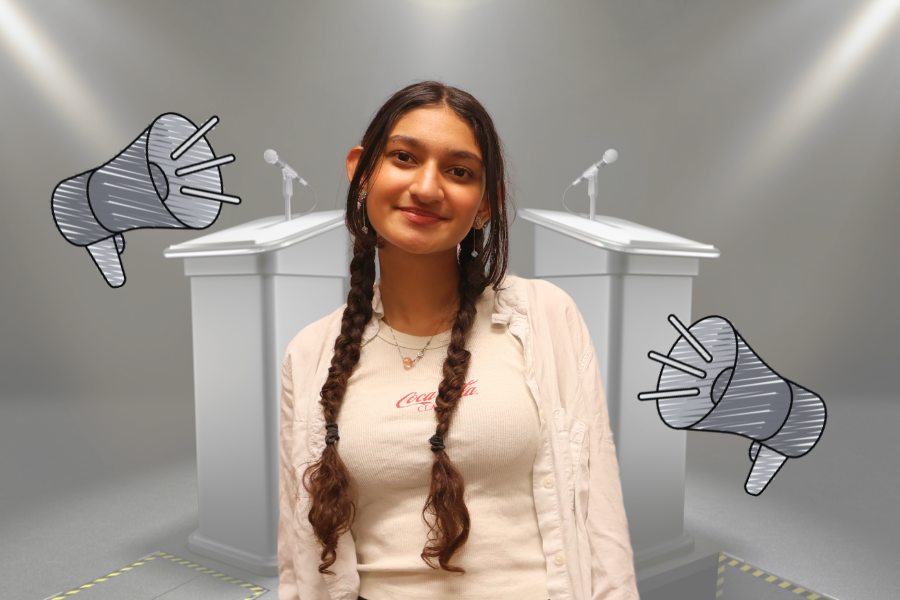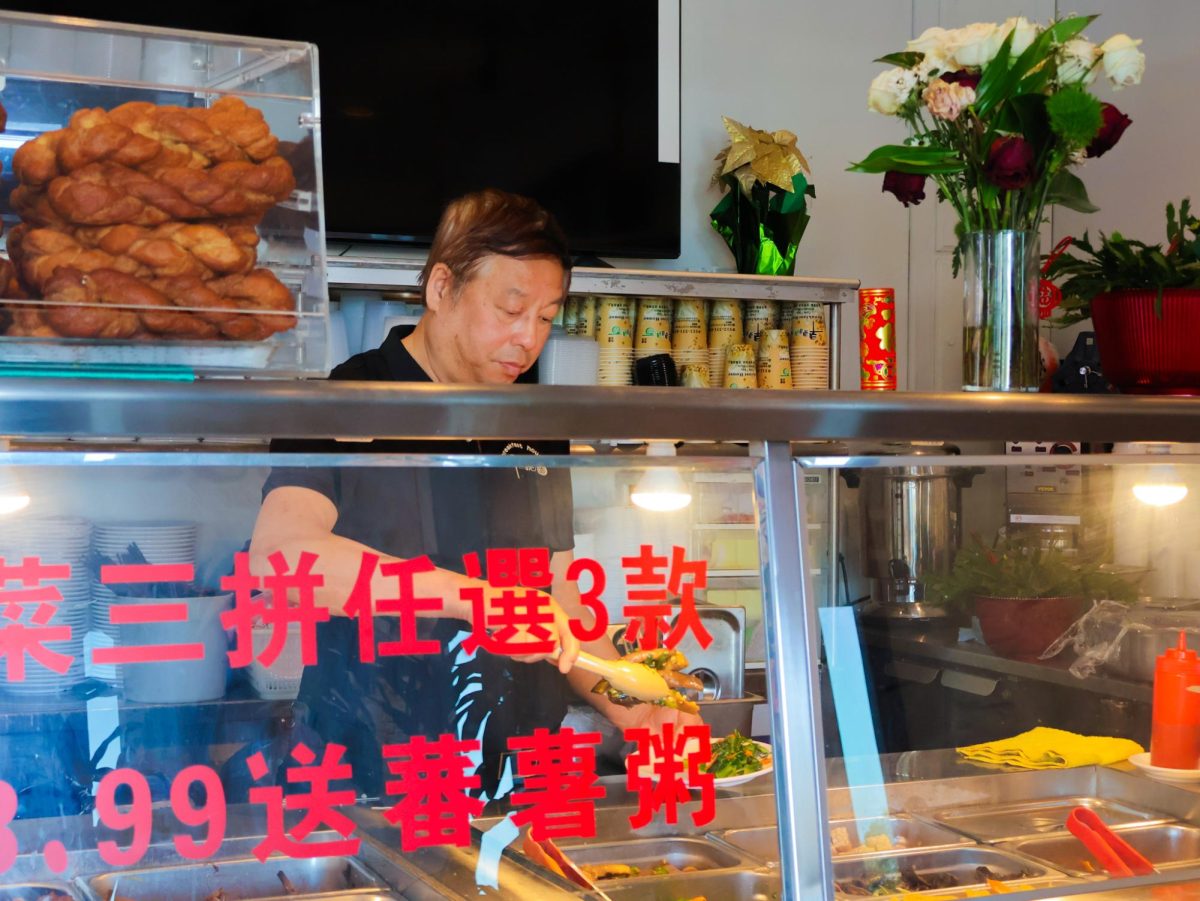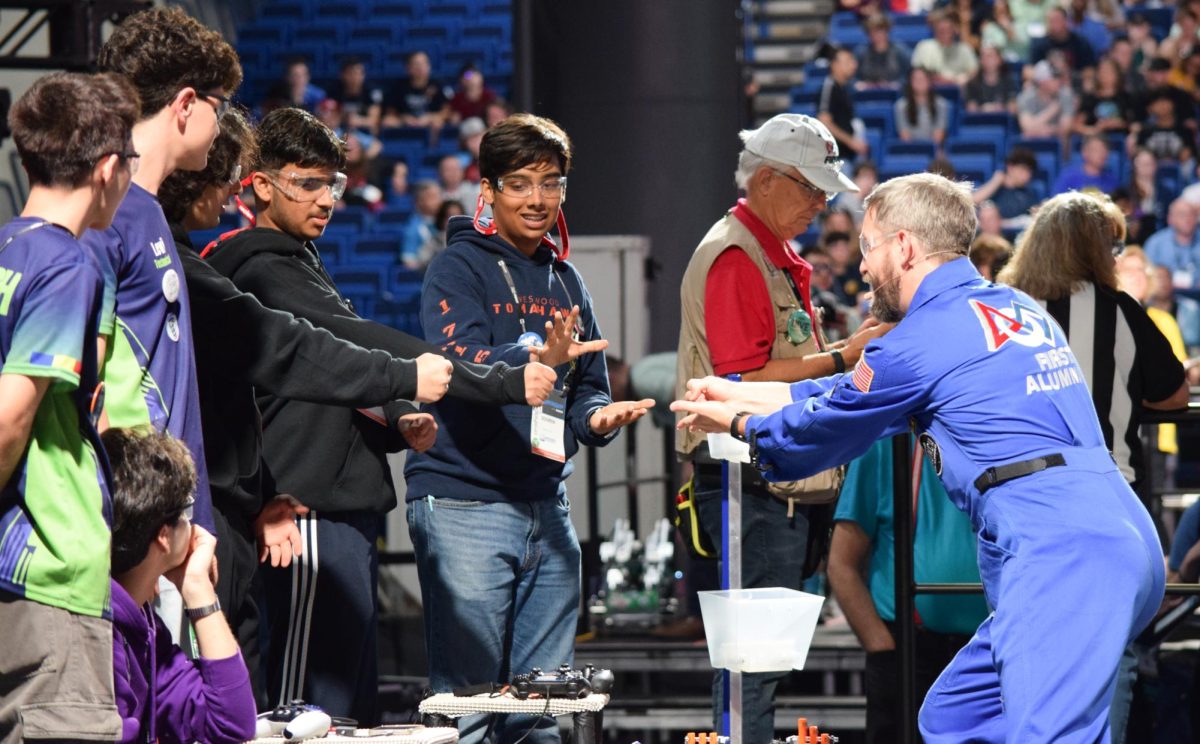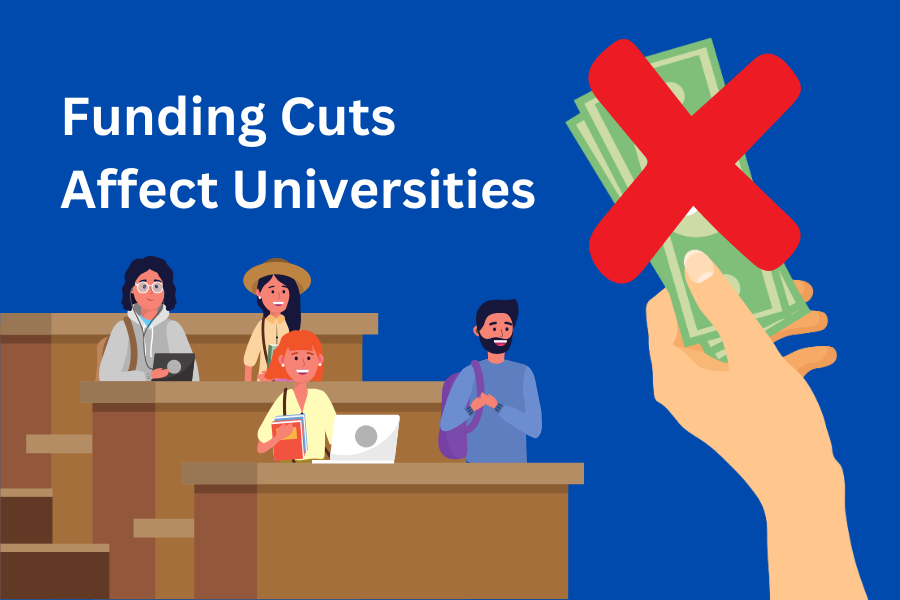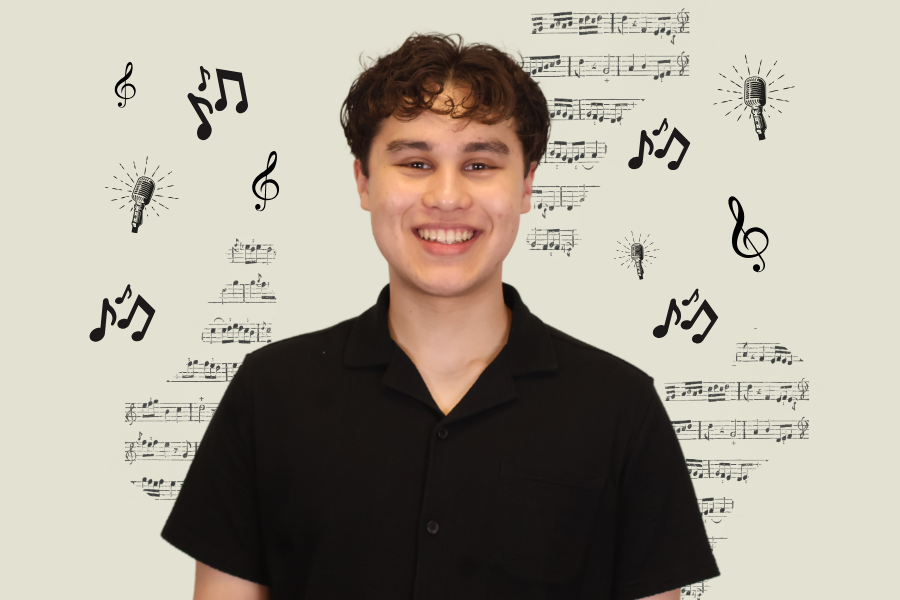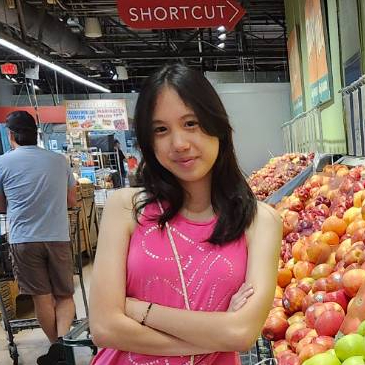To fulfill an assignment from English teacher Mr. Scott Chalk due on Tuesday, Feb. 13, TAG AP Language students went grocery shopping without their parents. Students were instructed to buy at least 20 items, providing receipts, selfies, and parent signatures as proof, to demonstrate their knowledge of their current assigned reading, The Merchant of Venice by William Shakespeare.
“If you’re reading Shakespeare and looking for some application, just looking at it thematically or doing rhetorical analysis gets a little old,” Mr. Chalk said. “Most students complain that there’s no real-life application of school, so I wanted to have them practice something they’ll do pretty much every week for the rest of their lives.”
Despite some students being initially confused by how the assignment connected to the novel, most found it interesting and were able to enjoy the unconventional opportunity. Ishira Limaye ‘25, for instance, conveniently combined the assignment with her family’s weekly shopping routine.
“[This was] not like a lot of the assignments we get from school, but it was fun to get out of the house,” Limaye said. “It was definitely a very creative assignment. I actually had a really easy time [meeting requirements] because I just used this as our weekly grocery shopping, so I ended up with 44 items.”
Upon creating the assignment, Mr. Chalk anticipated that about 70% of his students had never gone to the grocery store by themselves before. Therefore, while they had prior experience with navigating the store and picking out products, they were also able to develop a sense of self-sufficiency and solve problems on their own.
“I went to HEB and I got quite a lot of stuff,” Akshatha Magadi ‘25 said. “[The assignment] taught me how to be independent, figuring out how to do stuff by myself. I think this was a good experience of going out shopping because in the future we’ll have to do that anyway.”
The experience also lent students a glimpse into their future college lives, as well as what their parents have to do every week.
“To live on your own, you have to know how to take care of yourself,” Yuegelica Yeong ‘26 said. “I definitely think [I learned from this]. It was just really fun, shopping on [my] own and getting to decide what [I] wanted to buy.”
However, some aspects of the shopping experience proved challenging, as most students were used to waiting for their parents to help them make decisions while grocery shopping. To prepare for shopping, many students wrote detailed lists of what they wanted to buy.
“Some of the stuff I wanted to buy wasn’t there so I had to make decisions on what to replace it with,” Yeong said. “Usually my parents choose the fruit and I wasn’t sure which [fruits] were good so I ended up not buying any. And I don’t have my credit card so I had to ask my parents for a card.”
The assignment connected to The Merchant of Venice, which, as the title suggests, involves the exchange of goods and services for money.
“[The purpose of the assignment was] to have some real-world application using the idea of money,” Mr. Chalk said. “We also did mock stocks, we’ve planned the cost of travelling to Venice, and we’ve talked about credit scores. I know we have Macro- and Microeconomics [at Westwood], but this was more personal day-to-day finance.”
As an extension of the money-related themes from the book, Mr. Chalk discussed marketing with his class, as well as the subtle manipulation tactics that companies use to entice customers, and people’s tendencies to gravitate towards the familiar. He hoped that despite a lot of people believing that they’re independent and unaffected by advertising, his students would learn to recognize these subconscious tactics and make better financial decisions. As part of their assignment, students wrote reflections on these tactics.
“[In my reflection,] I talked about how stores manipulate you to buy more than you need, advertising really pretty pens or something,” Magadi said. “You really want it so you buy more stuff, even though you don’t need it. The assignment made people aware of it.”
In addition to The Merchant of Venice, the class read This Is Water last semester, a commencement speech by David Foster Wallace about the banality of life. Rather than only encouraging his audience to “shoot for the moon” and pursue ambitious aspirations, Wallace emphasized the importance of recognizing others’ perspectives among the mundane and repetitive. These lessons tied into the life skills that Mr. Chalk hoped his students would gain from the task.
“We talked about going through this process the rest of your life and the patience and empathy you have to have when you’re out in society, trying to not be frustrated by every person you encounter, so you can try to find some perspective,” Mr. Chalk said. “Everyone, when they go out, is either in a hurry or agitated. Hopefully this [assignment] helps [students] create their own disposition or temperament when they do these menial tasks.”
Wallace’s speech also affected some students’ experiences while shopping by expanding their perspectives to include consideration of other shoppers.
“We had to write about how our experience reflected the speech,” Limaye said, “so while we were there, I was paying a lot more attention to my surroundings. I was noticing things that I probably normally wouldn’t think about. The speech is, in a nutshell, about how you never know what anyone else is going through. So when I was taking the selfie, it was really awkward, but in reality, nobody really cares. They’re probably doing their own thing, getting groceries for their own families, and they’re too focused on what they’re doing to focus on me taking selfies.”
This consideration included students helping others — specifically, their parents. Other than confirming that students actually completed the task, parents had limited roles in the assignment. However, the shopping task affected parents in other ways, saving them the time of making another trip to the grocery store.
“Of course, Westwood students are absolutely under an avalanche of [work], but so are their parents,” Mr. Chalk said. “A lot of parents are doing whatever they can for their children. [I wanted] to unburden the parents who have probably gone to the grocery store for [their families] for 16 years. I’ve received about 20 emails from parents thanking me for this assignment.”
Mr. Chalk believes that life skills include finding time to carry out daily routines, such as walking dogs, cleaning the house, and taking care of the lawn. Therefore, students benefited from finding happiness through the intentionally tedious task of grocery shopping.
“It’s not just about going to the grocery store, it’s about the perspective,” Mr. Chalk said. “[It’s about] doing things for other people, especially those who are taking care of you.”

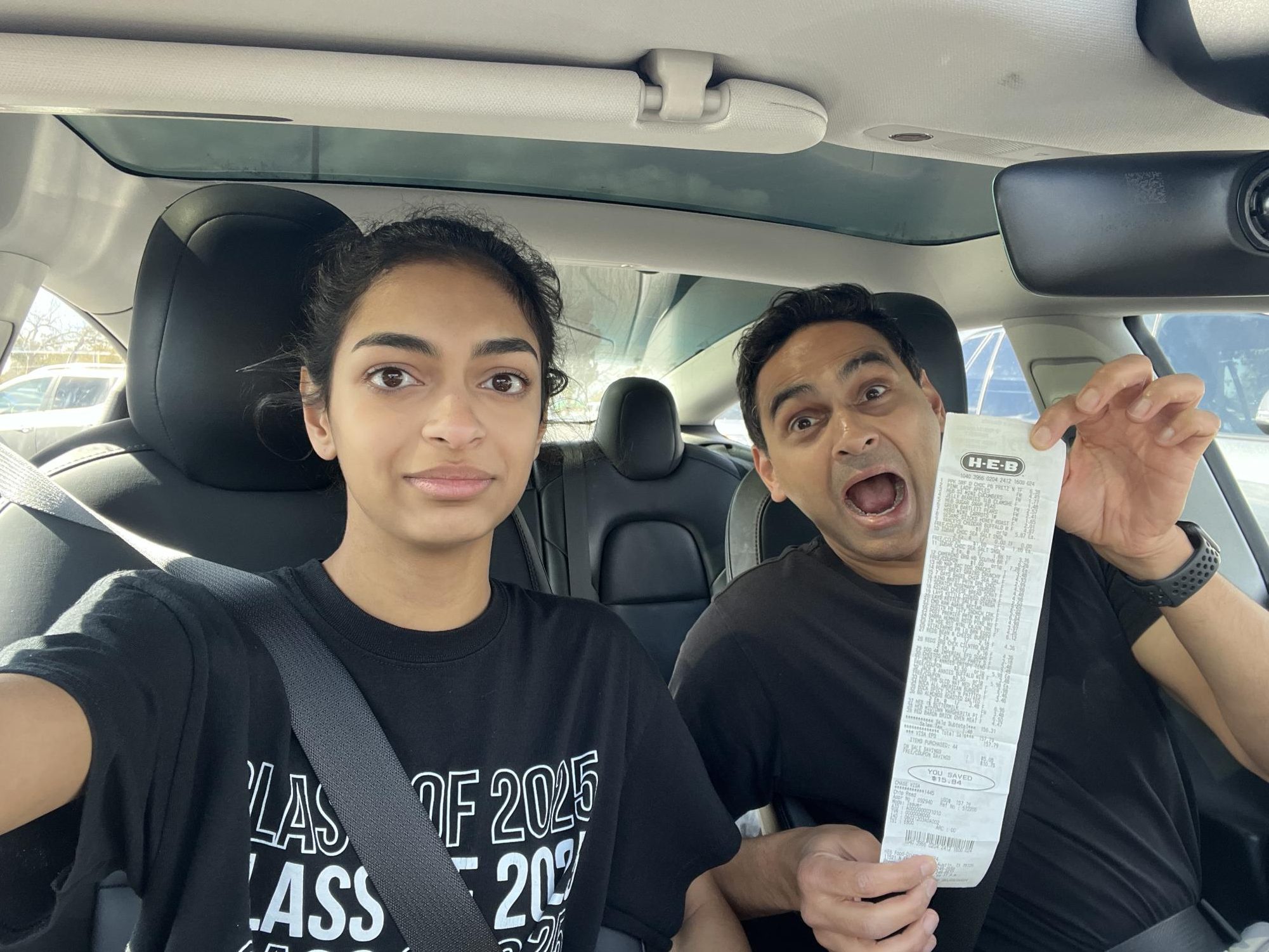
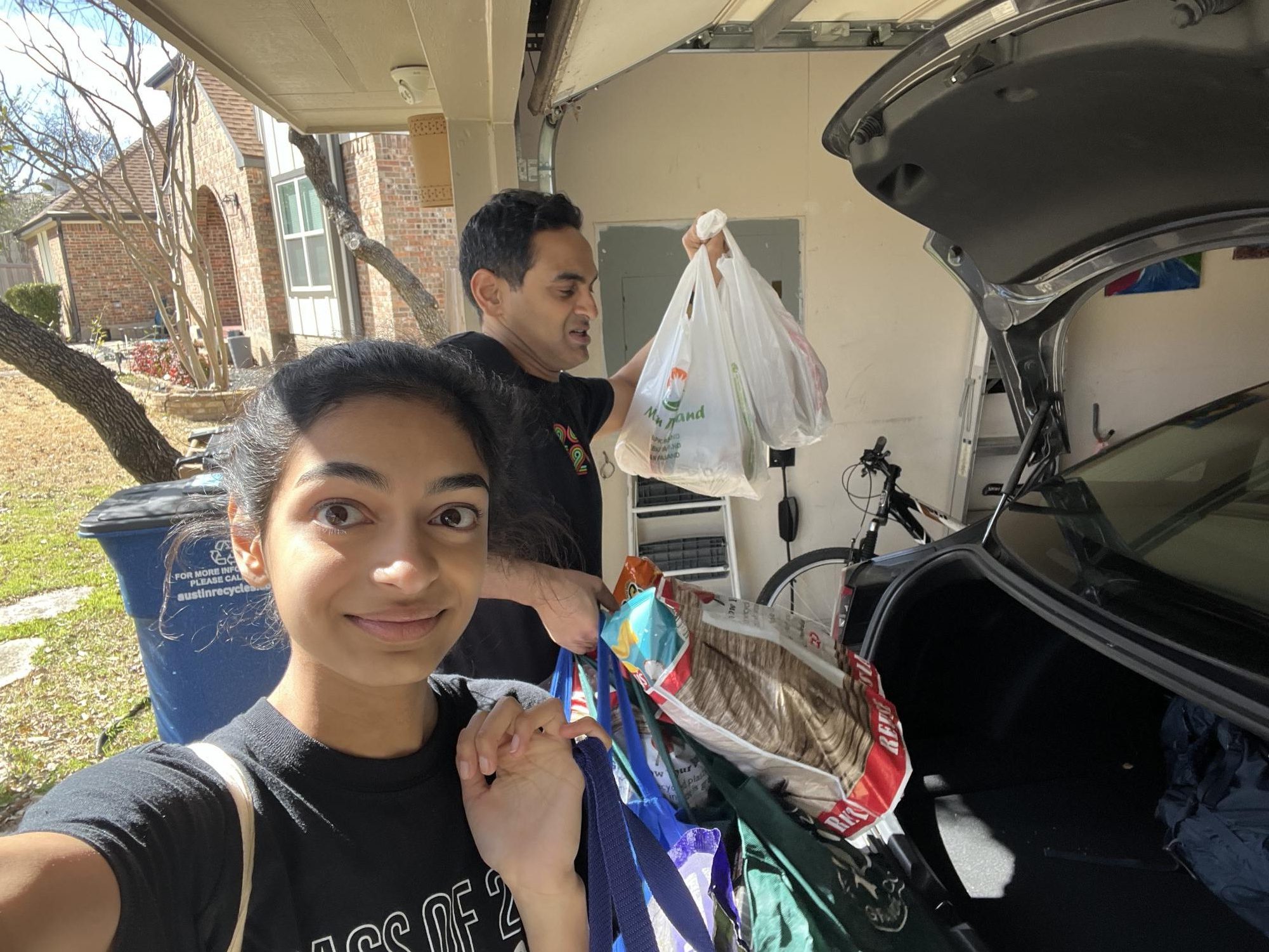
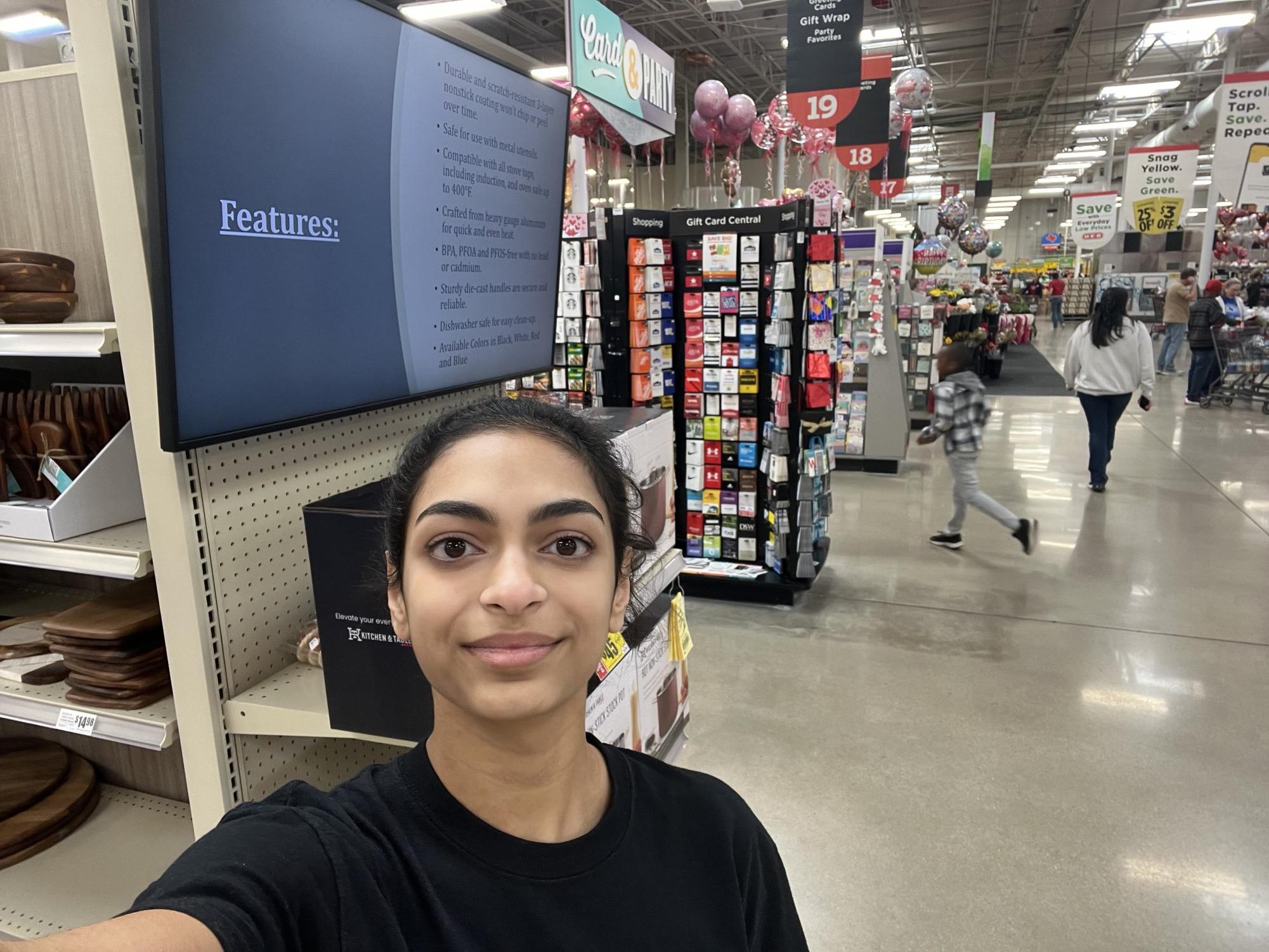
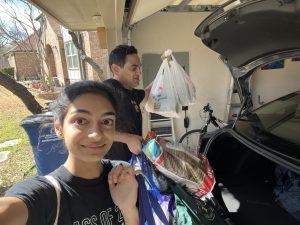

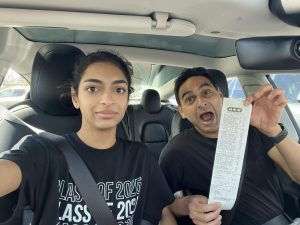
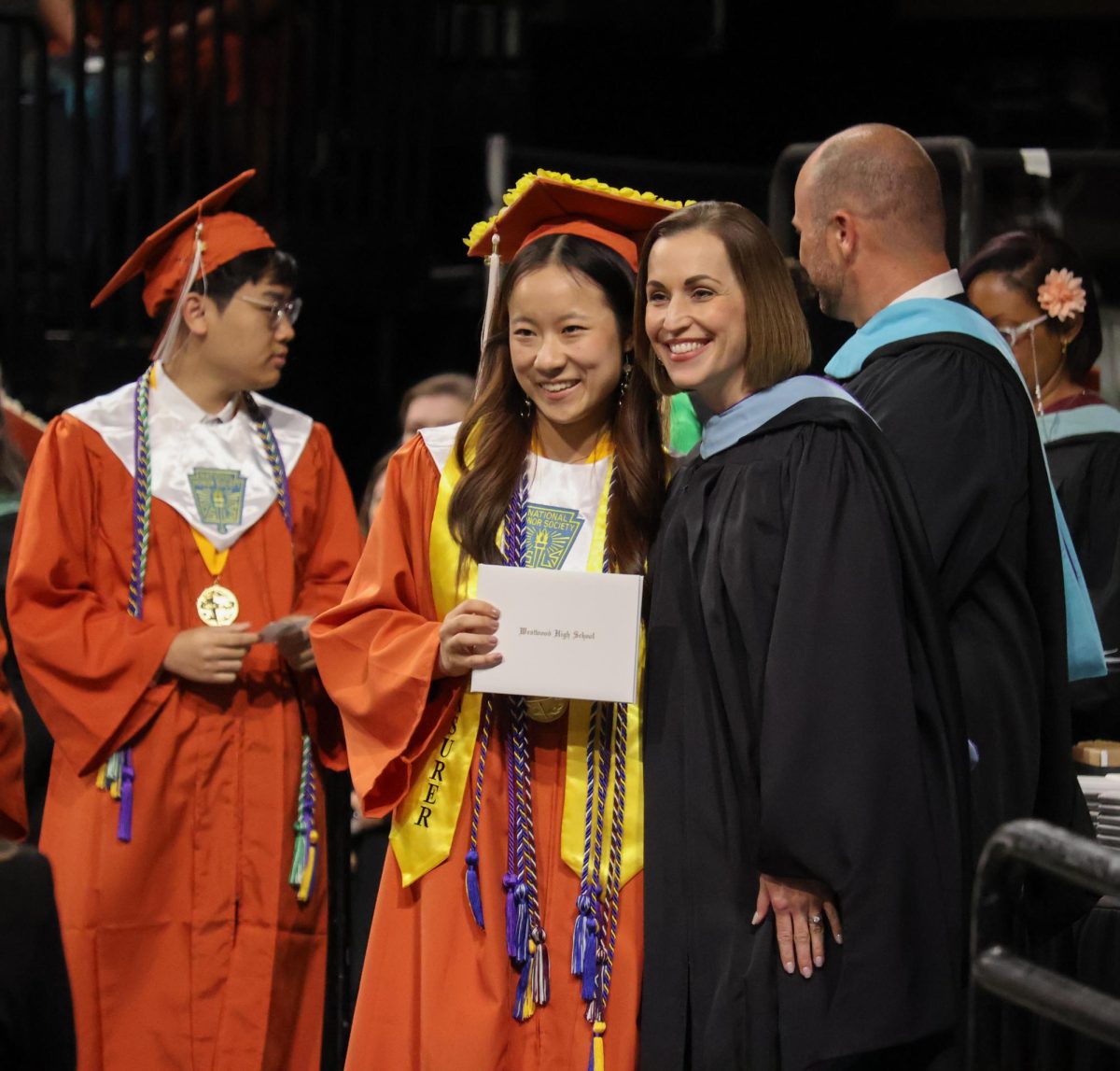
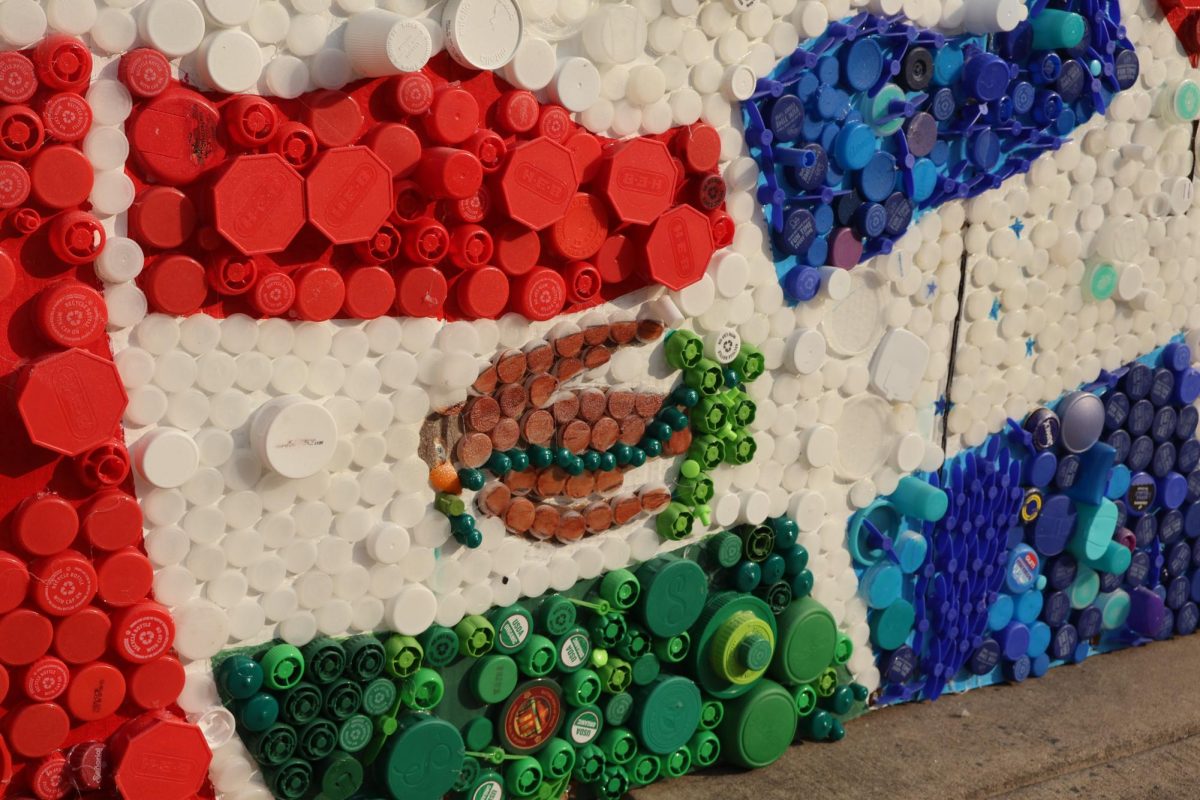

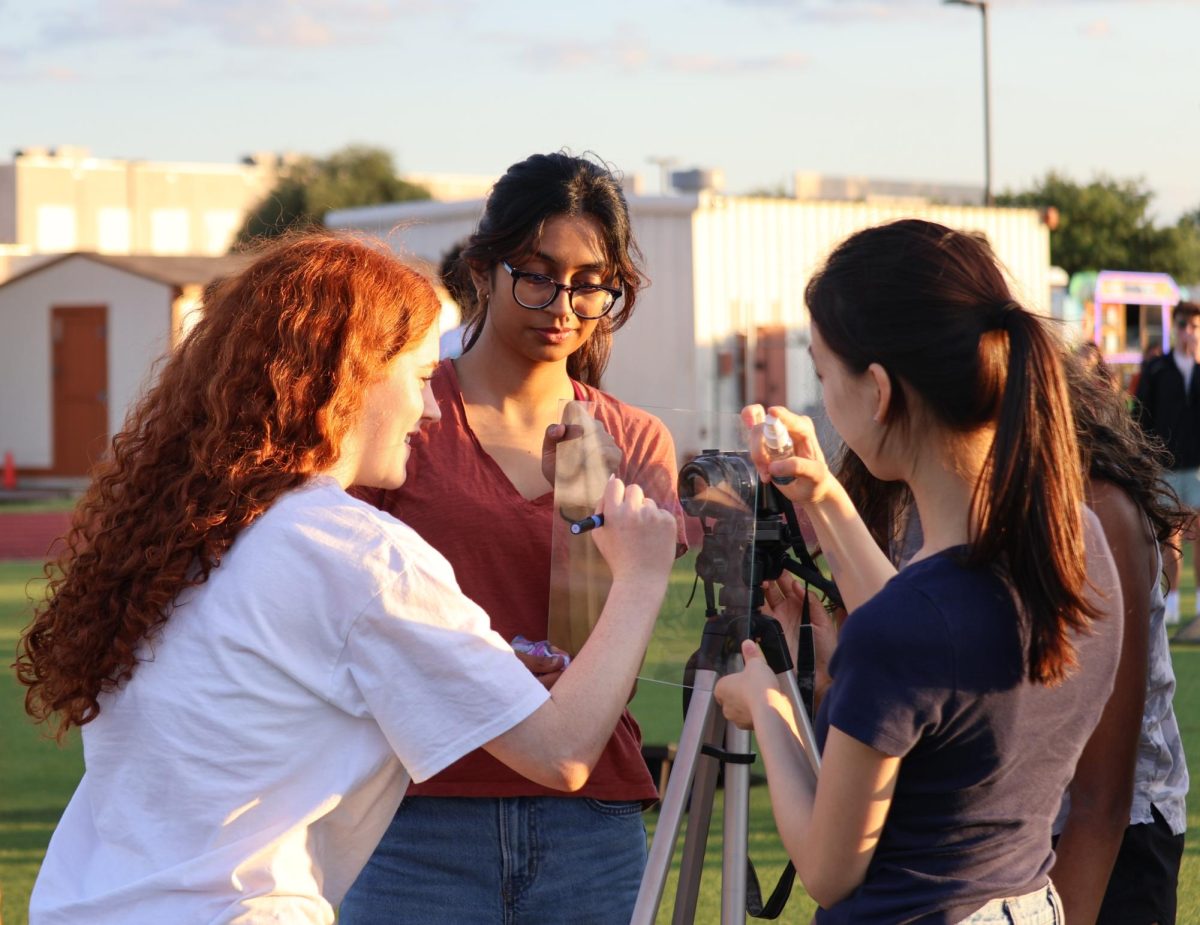
![Holding her plate, Luciana Lleverino '26 steadies her food as Sahana Sakthivelmoorthy '26 helps pour cheetos into Lleverino's plate. Lleverino was elected incoming Webmaster and Sakthivelmoorthy rose to the President position. "[Bailey and Sahiti] do so much work that we don’t even know behind the scenes," Sakthivelmoorthy said. "There’s just so much work that goes into being president that I didn’t know about, so I got to learn those hacks and tricks."](https://westwoodhorizon.com/wp-content/uploads/2025/05/IMG_0063-1200x1049.jpg)

